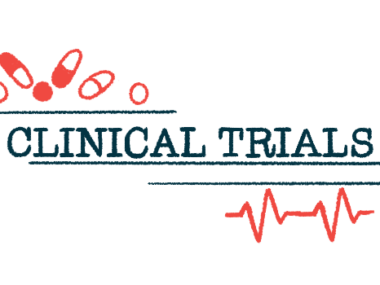Vaccination, testing encouraged as part of Hepatitis Awareness Month
May 19 is Hepatitis Testing Day to draw attention to early diagnosis
Written by |

Hepatitis Awareness Month is held every May to raise awareness about viral hepatitis, an inflammation of the liver caused by a virus, and help promote prevention, diagnosis, and the timely treatment of this group of infectious diseases.
The U.S. Centers for Disease Control and Prevention (CDC) usually assembles a list of activities to bring viral hepatitis into focus during the month, to help doctors and the public understand why it’s important to get vaccinated for hepatitis A and B, and why early testing and timely treatment for hepatitis B and C matter.
While the site hasn’t been updated for 2025, one key event this month is Hepatitis Testing Day on May 19, which has been observed for more than a decade to draw attention to early diagnosis in hepatitis B and C. All adults are advised to get tested at least once, especially those who are more vulnerable or at higher risk. These two types of viral hepatitis often don’t cause symptoms until they’ve already damaged the liver. Without testing, people may not know they’re infected and can unknowingly spread the virus or develop serious problems like liver cancer or cirrhosis, which is when the liver becomes irreversibly scarred and damaged.
A need for ‘further education’
Testing helps people get treated sooner and protect both their health and that of others. While there’s no cure for hepatitis B, treating it can help lower the risk of liver cancer. There’s no vaccine for hepatitis C yet, but most short- and long-lasting infections can be cured after a few months of treatment.
Results from a recent U.S. survey announced by Dynavax Technologies show that more than half of Americans are unaware of the risk of cirrhosis and liver cancer associated with chronic hepatitis B, and they’re also not fully aware that vaccination can help prevent these consequences.
The findings “underscore the need for further education about hepatitis B and information about how to prevent it,” Rob Janssen, MD, Dynavax’s chief medical officer, said in a company press release. “As we recognize Hepatitis Awareness Month, these findings reinforce our commitment to collaborating with the healthcare community to educate Americans about the dangers of hepatitis B and its impact on public health.”
In addition to providing an opportunity for hepatitis B and C testing during Hepatitis Awareness Month, states like Virginia also use the occasion to share information about their free or funded programs for vaccination, medical care, and assistance for vulnerable or at-risk populations, along with ongoing surveillance efforts to monitor outbreaks.
The North Georgia Health District is also joining the effort, which aligns with CDC’s Division of Viral Hepatitis strategic plan for 2025 and its call to inform the public and promote vaccination and testing to help prevent and control viral hepatitis. The efforts also help move toward ending viral hepatitis as a public health threat in the U.S. by 2030, matching the World Health Organization’s global strategy.
In New York City, Hep Free NYC is organizing a number of activities for Hepatitis Awareness Month. They include:
- a day to provide education about hepatitis B and C and free screening to Brooklyn residents, May 9 at Restoration Plaza
- a press event and rally for action, May 15 at New York City Hall
- a day of outreach and free screening, May 20 at Roberto Clemente Plaza in the Bronx







